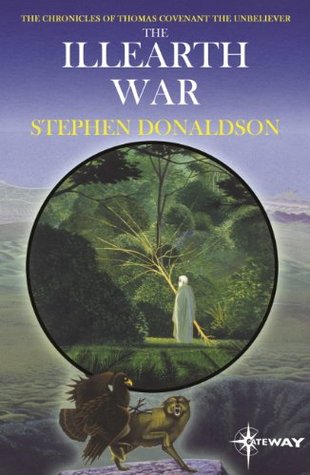Callindrill was trying to help them. Rapidly he tore their clothing into strips, made tourniquets and bandages. He did not look up to see his danger.
Lord Callindrill does something stupid in the middle of a strategic and tactical retreat which puts everything at risk. Yes, he acted to save brave soldiers - but they are all dead a few moments later. His act changed nothing while putting the mission at risk.
Donaldson does this all the time. He does not build defined characters who then play out against each other - hence having the characters drive the narrative.
For Donaldson, the process is reversed. The narrative drives the characters. If the narrative requires that a character behave 'out of character,' then they do.
Callindrill, who is 'wizard smart,' is suddenly dumb, to enable another round of derring do.
[1] This blows out my reader engagement with the action due to a sudden attack of disbelief that Callindrill could be so stupid at a critical moment*, and [2] Provides another evidence point of the incoherency of Donaldson's paper-thin characters.
*If Donaldson had simply played his characters to the best of their ability, there'd be plenty of action, and the narrative would be much sharper and believable. Part of his problem is that his villains are also weakly defined, like all his characters - mere cardboard cut-outs. The good guys and the bad guys are mirrors of each other. And like mirrors - any depth is an illusion.
On further reflection (no pun intended), this is aligned with Donaldson's stated view (paraphrased) that characters play out their internal struggles in the events and opposing characters. I.e. the external is the internal writ large ... mirrors indeed.
Perhaps it can be said, that for Donaldson, characters are ciphers for the drawing of specific internal/external conflicts. The point of driving narrative focus becomes the conflict itself (and its eventual resolution) rather than the characters. Hence why the characters are so thinly drawn. They have to be transparent, or else they'll get in the way of Donaldson's focus on externalising internal conflicts.


